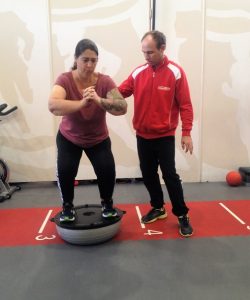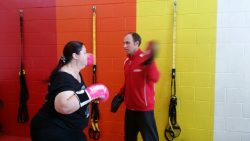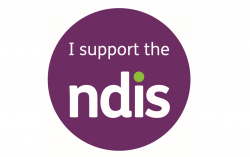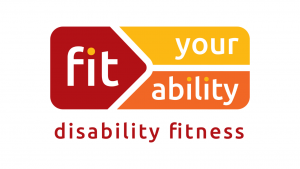 Everyone knows that exercise is important for your health and wellbeing, but what about exercise for people who have intellectual disabilities like Down syndrome (DNS) or cerebral palsy (CP)? The recommendation is for ALL Australians to achieve 30 minutes of exercise every day. It’s even more beneficial for people with disabilities as they tend to be more sedentary. According to experts some intellectually disabled individuals lack many components of physical fitness, so a comprehensive program that covers all fitness components would be ideal. Some also live with multiple disabilities, they may also have physical disabilities. Poor postures, lack of co-ordination of body movements and lack of balance are very common, in addition the risk for obesity is high.
Everyone knows that exercise is important for your health and wellbeing, but what about exercise for people who have intellectual disabilities like Down syndrome (DNS) or cerebral palsy (CP)? The recommendation is for ALL Australians to achieve 30 minutes of exercise every day. It’s even more beneficial for people with disabilities as they tend to be more sedentary. According to experts some intellectually disabled individuals lack many components of physical fitness, so a comprehensive program that covers all fitness components would be ideal. Some also live with multiple disabilities, they may also have physical disabilities. Poor postures, lack of co-ordination of body movements and lack of balance are very common, in addition the risk for obesity is high.
Barriers to overcome
It can be challenging to get started on an exercise routine for people living with an intellectual disability. Getting to a traditional gym and training on a busy gym floor can be intimidating. Not knowing what to do or where to start can be confusing. Worrying about how to train safely and make sure you don’t get hurt can be a bit scary. Don’t worry! There are lots of things you can do.
What can you do?
The fact is, there are many different types of exercise and types of movements that anyone can do, even with physical or intellectual limitations. Every aspect of health and fitness can be trained and improved through the right type of exercise. Many of these can be done at home or with minimal equipment. Strength training can be done through bodyweight movements, lifting light weights or training with resistance bands and medicine balls. Cardiovascular improvements can be done by walking, jogging, biking, swimming, rowing, boxing or anything else that gets your heart rate up and keeps it up for 20 minutes or more. Flexibility and range of motion can be improved through gentle stretches.
 Intensity
Intensity
Exercise does not need to be extremely vigorous to be helpful, for people who are very inactive, just a slight increase in activity will give health benefits. A little activity is better than none at all, and more activity is even better. The key is to take it slow, start with low intensity, beginner level movements and progress slowly. Keep it fun and enjoyable.
Health benefits
Regular exercise has a large number of physical health benefits including
- Maintaining a healthy body weight
- Improved quality of sleep
- Increased bone density
- Improved muscle strength
- Better energy levels
- Increased lung capacity
- Increased endurance and stamina
NDIS Registered Provider
If you need a hand getting started, working with a Fitness Enhancement Personal Trainer can help with some of the common issues discussed earlier. We can come to you in the comfort and privacy of your own home, or in one of our 100% private Training Studios.
Fit Your Ability, a division of Fitness Enhancement, is an NDIS registered provider for Core and Capacity Building registration. No matter your disability or your goals — whether it’s sport, fitness, exercise, or recreation — our team is here to help.
Enquire today to find out more.


